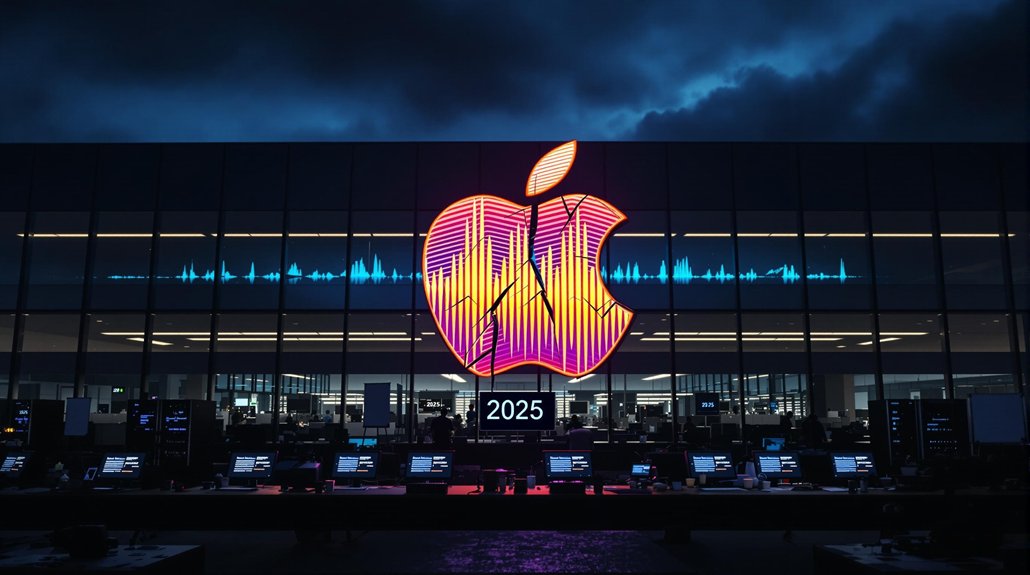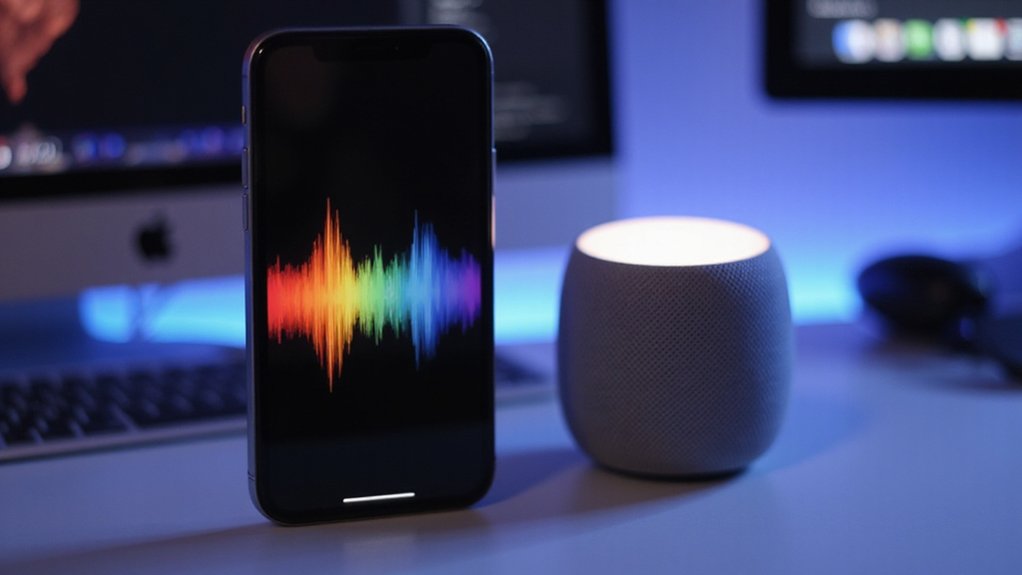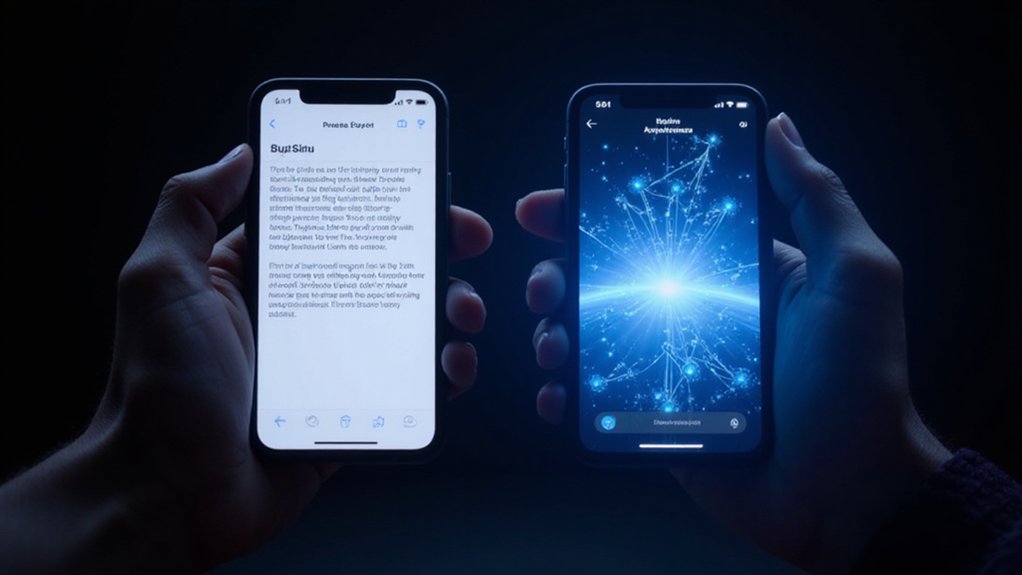Apple’s promised Siri upgrades for iOS 18 are considerably delayed, with key features like context understanding and on-screen awareness missing. During a tense company meeting, executives called the situation “ugly and embarrassing,” acknowledging features only worked correctly 66-80% of the time. Engineers are struggling with AI integration while facing burnout. The delay raises questions about Apple’s competitive position in AI, especially as the company balances advanced capabilities with its privacy-focused approach. The full story reveals deeper challenges.
Frustration filled the air at Apple’s headquarters as the company admitted major delays to Siri’s most anticipated upgrades. Key features like personal context understanding, on-screen awareness, and in-app actions won’t arrive with iOS 18 as promised. Apple has even deleted iPhone 16 ads that promoted these features. The company hasn’t announced a new delivery date, leaving users wondering when these improvements will finally arrive.
Apple’s Siri upgrades face significant delays, leaving users in the dark about when promised intelligence features will materialize.
During a tense all-hands meeting, one executive called the situation “ugly and embarrassing.” Team members are reportedly suffering burnout as they race to fix problems. Leadership has taken personal responsibility and is considering management changes to address the issues.
Technical challenges are at the heart of the delay. The features reportedly only work correctly 66-80% of the time. This falls short of Apple’s high standards for new releases. Engineers are struggling to integrate AI with existing systems and achieve consistent performance. This setback comes despite Apple planning to hire approximately 20,000 people focused on R&D, silicon engineering, and AI.
The delay has sparked criticism from users and tech experts. Many are upset that Apple advertised features that weren’t ready. This has led to comparisons with overpromising AI startups and raised questions about Apple’s ability to compete in the AI space.
These setbacks could impact iPhone 16 sales and put Apple at a disadvantage against competitors like Google and Amazon, who continue to advance their AI assistants. Investors have expressed concern about Apple’s AI strategy and its ability to monetize AI advancements.
Apple faces unique challenges balancing advanced AI with its strong privacy stance. Processing personal data on-device creates technical hurdles that cloud-based AI solutions don’t face. This makes it harder for Apple to match the capabilities of less privacy-focused competitors. The company is finding that AI systems require constant maintenance and extensive resources to adapt to unexpected situations, a limitation highlighted by AI experts.
The future timeline for Siri’s upgrades remains uncertain. Some speculate that further delays could push the release beyond 2025. Apple is reportedly increasing investment in AI research and development, but questions remain about whether the company can overcome what appears to be a fundamental flaw in its AI approach.









